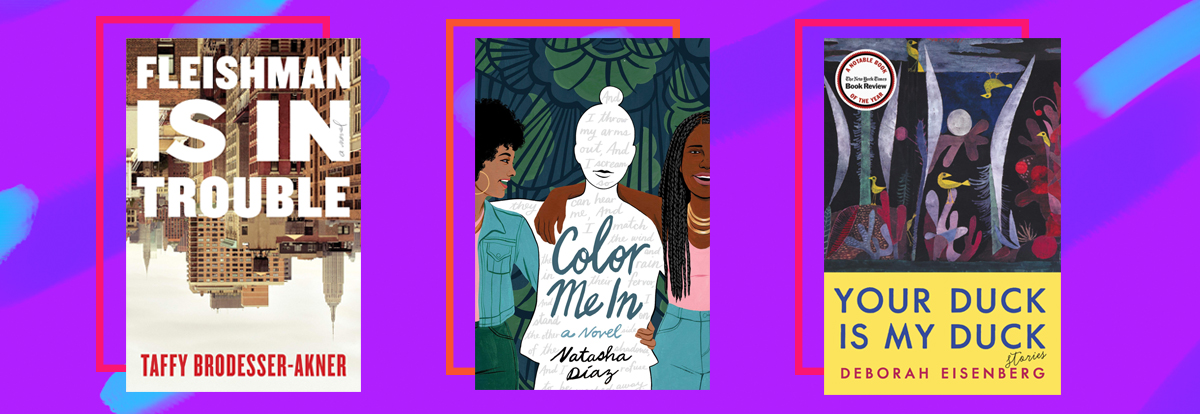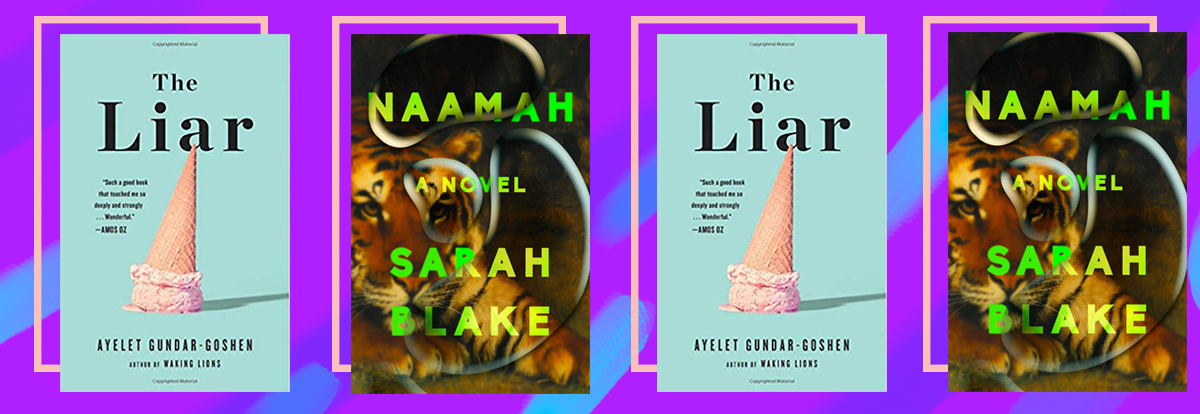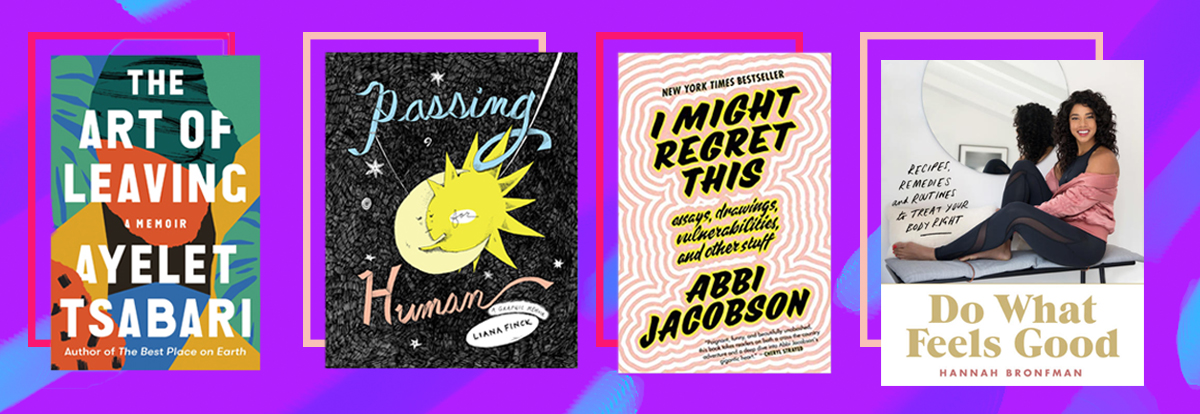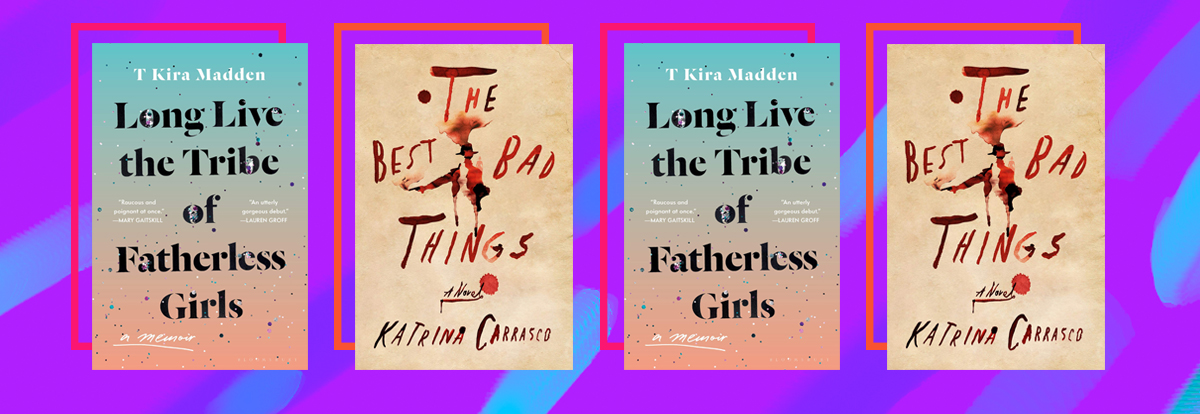We love books here at Alma. Maybe that’s because Jews are historically the “people of the book,” or maybe that’s because we’re nerds. Either way, this past year brought us so much great Jewish-themed writing that we are excited to highlight. So, without further ado, here are the 14 books that won us over this year:
JUMP AHEAD: FICTION / MEMOIRS / NONFICTION / MISCELLANEOUS
Best Fiction

Best Jewish Novel
Fleishman Is In Trouble by Taffy Brodesser-Akner. We called Fleishman Is In Trouble “the buzziest book” of summer 2019, but we take it back. It’s the buzziest book of the entire year, and rightfully so. Taffy Brodesser-Akner, currently a writer at The New York Times Magazine, wrote a story of marriage and Jewish New York and motherhood and so much more. There are a bajillion and a half articles on Taffy and Fleishman out there (everywhere from Cosmopolitan to Grub Street), but throughout, critics agreed: This book is worth the hype.
On setting the story in Jewish New York, Taffy explained to Kveller, “It’s just what I know. Do you know what I mean? This is a real situation of ‘writing what you know.’ I’m a big fan of specificity; I’m very against making something broad so many people understand it. Even down to the title — which I was worried would exclude a lot of people. Ultimately, it would be false advertising to not say this is what it is. This is a book about a Jew in New York. I like the idea of not explaining what a Friday night dinner is — just having a Friday night dinner. I like the idea of everyone going only to the school where they’re going to meet other Jews like them. There’s still this huge culture around Jewishness, and I’m very comfortable in it.”
Best Jewish Young Adult Novel
Color Me In by Natasha Díaz. Díaz’s debut novel follows Navaeh Levitz, a Black Jewish teenager whose dad is making her have a bat mitzvah at age 16. Díaz, who grew up in a multiracial family — her mom is Liberian and Brazilian, and her dad is Jewish — drew on her own experiences to write the story.
“I hope that anyone who reads it, who has felt othered, or who hasn’t felt comfortable in themselves for whatever reason, or other people don’t accept them for who they are, knows: They have a right [and] a pride in who they are and there’s nothing wrong with taking ownership of that,” Díaz explained to Alma. It’s a powerful YA novel, and the way it dives into the nuanced realities of Black Jewish identity makes it the best Jewish YA book of the year.
Best Jewish Short Stories
Your Duck Is My Duck by Deborah Eisenberg. Six masterful stories from a true master of the form, Deborah Eisenberg’s latest collection proves her keen ability to capture humanity in all its messy dysfunction. And we waited for it long enough: Eisenberg, now 73, hadn’t released a collection of stories for 12 years (according to the New York Times, it takes her about a year to write each one). This one was well worth the wait. From the first story — when a painter travels to a remote estate, invited by a wealthy couple — you are totally absorbed into Eisenberg’s world.

Best Translation from Hebrew
The Liar by Ayelet Gundar-Goshen (translated by Sondra Silverston). The Liar, Israeli writer Gundar-Goshen’s third novel, has an unsettling premise: What happens when a young girl falsely accuses a past-his-prime star of attempted rape? The lie spirals out of control, but The Liar isn’t just about a false accusation — it’s about all the lies that weave throughout our lives.
Centering on a young Israeli teenager, the English translation by Sondra Silverston captures Israel perfectly. (Silverston has also translated works by Amos Oz, Etgar Keret, and Eshkol Nevo.) As the Translating Women blog observes, “Israeli author Ayelet Gundar-Goshen writes page-turning narratives that offer a painfully acute observation of human fallibility and experience. Translator Sondra Silverston is perfectly matched to Gundar-Goshen’s wry whimsy, and all of these books are a treat to read. If you’re after a good story, you’re in safe hands here: Gundar-Goshen’s storytelling is a thing of beauty, as is Silverston’s translation.”
Best Biblical Retelling
Naamah by Sarah Blake. We all learned the story of Noah’s Ark in Hebrew school. But did we ever learn about Noah’s wife? Nope! That’s where Sarah Blake’s beautiful, lyrical debut novel comes in: She reclaims the story of Noah’s wife, whom she calls Naamah. “It was hard to imagine being the woman that would be told all of the rest of the world, for the rest of time, would be able to trace back to you,” Blake told Alma. She took this premise — the burden of being Noah’s wife — and ran with it to wondrous results. (Read our interview with Sarah Blake here.)
Best Memoirs

Best Jewish Memoir
The Art of Leaving by Ayelet Tsabari. Tsabari, a Yemeni Israeli author, has followed up her award-winning short story collection The Best Place on Earth with a memoir about her childhood in Israel and her years spent traveling through India, Canada, Thailand, and more. The Art of Leaving is an absorbing and emotional read — and absolutely deserving of the best Jewish memoir of the year. Tsabari focuses in on Mizrahi identity in Israel, specifically Israelis of Yemeni descent, and sheds light on their history and culture. “I cannot see myself not writing something Mizrahi, or Yemeni. Right now, I don’t have an interest,” Tsabari told Alma. (Read our interview with Ayelet Tsabari here.)
Best Jewish Graphic Memoir
Passing for Human by Liana Finck. Back in 2017, Finck told us about what was to eventually become Becoming Human. “I’m worried it won’t be good,” she confided about the book, which she then described as a tale of how she lost her shadow. But Becoming Human is more than just good. The semi-fictional graphic memoir from the celebrated New Yorker cartoonist and Instagram’s wittiest artist, is breathtakingly vulnerable and touching. With her eloquent shaky line, Finck draws from the biblical stories like that of Ruth and Boaz, of Job, and the story of Genesis, to create a masterful tale of her own artistic and personal genesis that beautifully touches on what it’s like to feel different and “other” in the world. (Read our interview with Liana Finck here.)
Best Jewish Celebrity Book
I Might Regret This: Essays, Drawings, Vulnerabilities, and Other Stuff by Abbi Jacobson. Yes, it’s Abbi of Broad City! Yes, she wrote a book! (She’s also written — er, drawn — coloring books.) Even though Broad City ended this year, Abbi Jacobson is not going anywhere. Well actually — she went on a road trip, and she wrote about it in this quirky and warm travel memoir. Even though Abbi in Broad City is based on her, I Might Regret This is the most vulnerable she’s ever been. “Broad City is pretty personal, but that’s a character. It’s amplified,” she explained. “This book is the closest [to me]. It’s intense! I’d never written in that [essay] format, either. It was challenging, and I finally found a good voice. But it took me a while. It was really difficult.” It was worth the wait.
Best Wellness Book
Do What Feels Good: Recipes, Remedies, and Routines to Treat Your Body Right by Hannah Bronfman. Bronfman, an entrepreneur, DJ, and influencer, added “author” to her list of jobs this year. Her first book is part self-help, part cookbook, and part memoir. In an interview with The Nosher, she explained, “I feel like the world of wellness has been marketed in such a crazy way in the last seven years — and wellness doesn’t mean boutique fitness classes and organic food bought at Whole Foods! It’s really about the in-between moments; the way you talk to yourself, the things that you do for yourself, and cooking for yourself — whether that’s organic or not, whatever you can afford — it’s just an understanding of how to take care of yourself in a more meaningful, more mindful way.” The book also dives into her life growing up in a Black and Jewish family, and her grandmother’s lifelong struggle with an eating disorder.
Best Nonfiction

Best Jewish Nonfiction
Antisemitism: Here and Now by Deborah Lipstadt. Lipstadt’s latest is more relevant than ever, sadly, after the synagogue shootings in Pittsburgh and in Poway, California, and the rise in anti-Semitism in the U.S. and across the globe. (The cover of the book is from when neo-Nazis marched through Charlottesville in August 2017.) As Lipstadt told JTA, “I wasn’t surprised by Pittsburgh, but I was shocked. I wasn’t surprised because I kept saying something’s going to happen in our country, and had been happening.” Lipstasdt’s book is structured as letters: conversations with two fictional people — a Jewish student, and a non-Jewish colleague — that make the subject matter easy to read and understand.
Best Biography of a Jewish Figure
Ruth Bader Ginsburg: A Life by Jane Sherron de Hart. Obviously, the biography of the iconic Jewish Supreme Court Justice is going to win here. This is the first official biography of Ruth Bader Ginsburg, and it’s an impressive and comprehensive look behind the RBG we know today. Ginsburg sat for nine interviews over the course of 15 years, and de Hart draws from myriad sources to pull together her story. And, of course, it dives into how Jewishness impacts Ginsburg. If you haven’t read it yet, what are you waiting for? (Read our interview with Jane Sherron de Hart here.)
Best New Holocaust Book (Nonfiction)
Renia’s Diary by Renia Spiegel. Just a couple entries into Renia Spiegel’s Holocaust diary and you’ll find it’s nothing like Anne Frank’s. Sure, they’re both literary geniuses who wrote beautiful prose during the darkest period of their existence, but Renia’s diary comes from an older perspective. Written between the ages of 15 and 18, Renia’s passages are filled with teen angst and raging hormones. It’s a refreshing look inside the reality of life during the Holocaust as a teen who’s forced to navigate school, puberty, and rampant anti-Semitism.
Miscellaneous

Best Jewish Book Cover
Long Live the Tribe of Fatherless Girls by T Kira Madden. One word: glitter!!! In the LitHub essay on how Madden’s coming-of-age memoir got its cover, designer Tree Abraham writes, “I spent months coated in glitter, first trying to find the right balance and colors, and then trying to figure out how to replicate real glitter onto a mass-produced book.” The result? Simply beautiful. And a perfect fit for Madden’s riveting story, which takes us through her childhood in Boca Raton in the ’90s, growing up as a queer Asian Jew. (Read our interview with T Kira Madden here.)
Best Protagonist Named Alma
The Best Bad Things by Katrina Carrasco. Set in the 1880s, The Best Bad Things is queer historical fiction at its best, and follows a woman named Alma Rosales. Alma is a detective, a spy, a smuggler, and goes undercover as a man. She’s the best Alma!!!